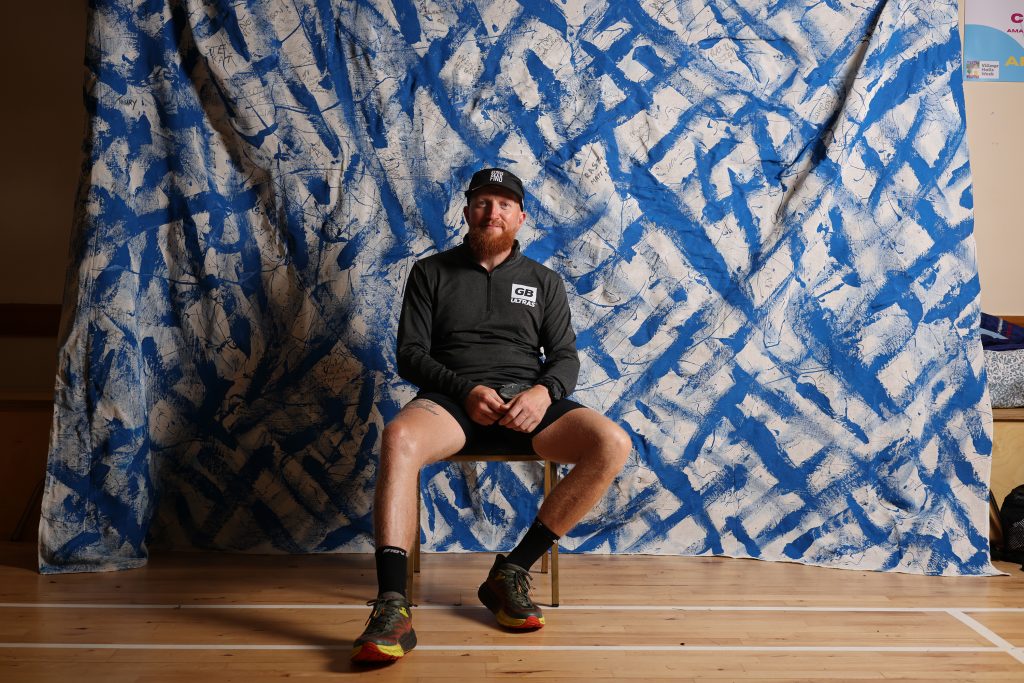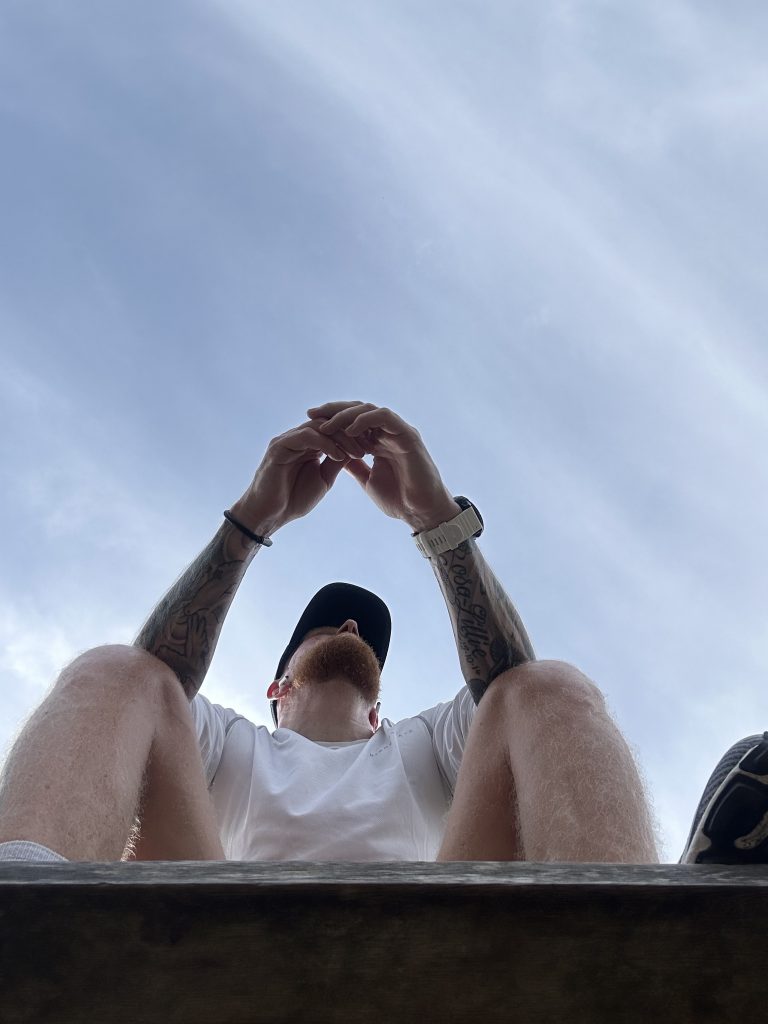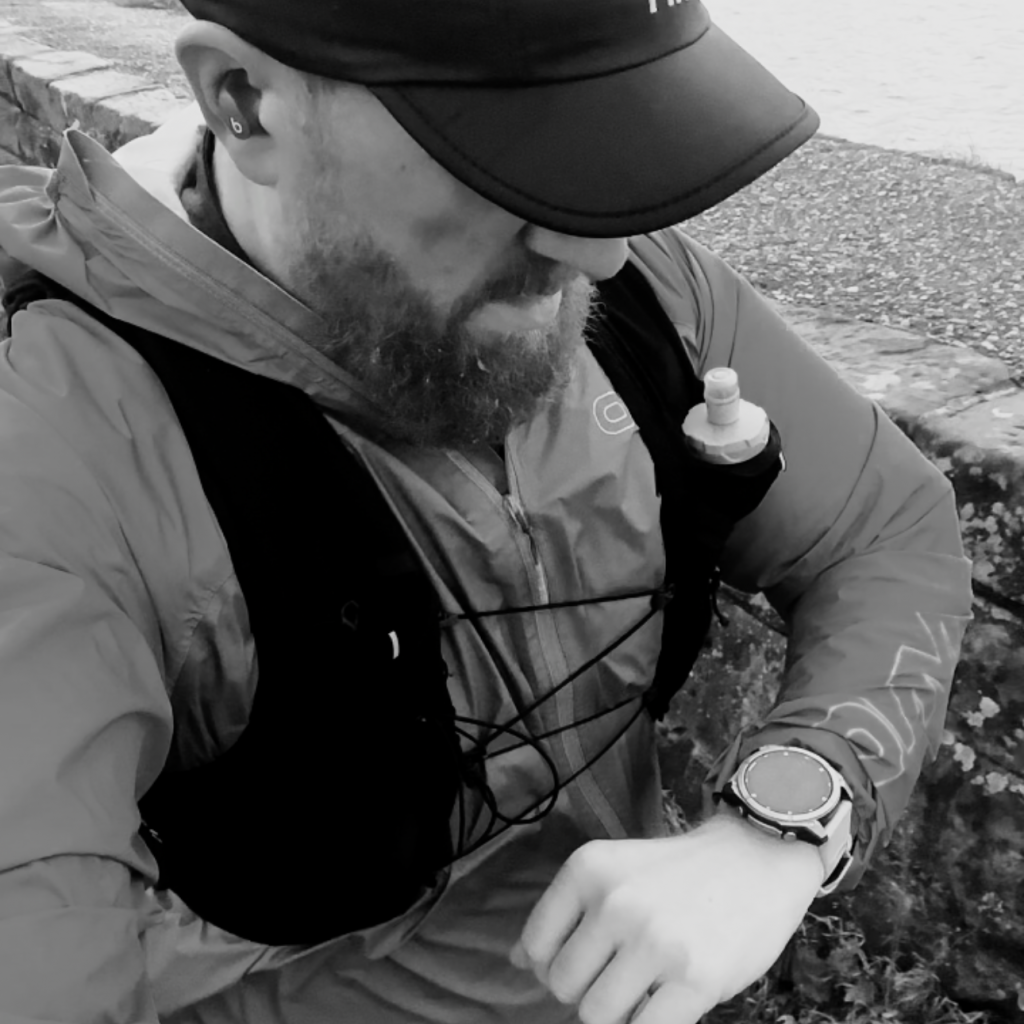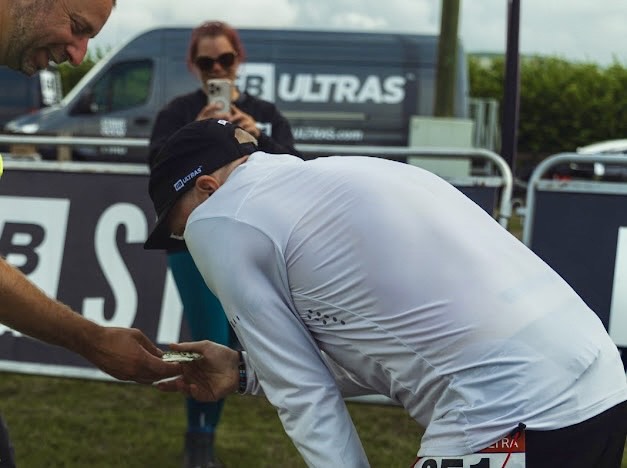Crossing an ultramarathon finish line should feel like the ultimate high. Months of training, sacrifice, long miles in the dark, it all builds to that one moment when you finally stop running. But what no one really talks about is what comes after.
When the medal is in your hand, the data has been uploaded to Strava, and the body finally stops hurting, you expect satisfaction. Instead, many of us, me included, are hit with something strange. The post-ultra blues.

The Quiet After the Finish Line
After my big races like Yr Wyddfa 100 Mile, Chester 100 Mile, and Race Across Scotland 215, to name a few, the days that followed were oddly empty.
In Snowdonia, I remember the buzz of the finish line, the superb support, the relief of stopping, the hugs, the blur of emotion in completing the Grand Slam which had been ongoing all year, and then, the next morning, silence. No morning alarms, no gear prep, no race plan. Just sore legs and a vague sense of… now what?
My mind, so used to routine, structure and purpose, suddenly lost its rhythm. Essentially, you go from relentless forward motion and progress to absolute stillness, nothing. And that stillness can be brutal.

Why the Post-Race Dip Happens
The crash isn’t a weakness. I put it down to biology and psychology colliding.
For example, dopamine depletion. For weeks or even months, your brain’s reward system has been tied to training milestones working towards that race. When that race is over, your dopamine levels will drop right off.
Add to that your loss of structure. Ultramarathon training gives you daily direction. Training runs, fuelling, strength training, recovery, tapering. When that finishes, you can feel unmoored. And then finally, identity gap. For months you’ve been “the runner preparing for X race.” When that identity pauses, so can the motivation.
Throw in to that physical fatigue, sleep debt, and general soreness, and it’s no wonder your general mood takes a hit!

Lessons from My Races
At Chester 100 miler, I remember the mix of euphoria and emptiness after crossing the line. I trained for 12 weeks over the winter with an optimistic time target in mind. The race had tested everything, my pacing, fuelling, night running alone. I hit my target. But once it was complete, I didn’t feel like celebrating. I just wanted something to chase again.
After my biggest challenge to date yet, the Race Across Scotland, the crash hit even harder. This kind of event dominates your entire world for months. It certainly did for me. My whole race year and training was planned around it. My family time and holidays were shifted to accommodate it. I even had to take annual leave from work for training and the actual race itself.
When it’s over, you expect a sense of completion, a sense of achievement. Don’t get me wrong, you get that. Briefly anyway. But then, there’s just a weird gap. Something missing. You check your Strava stats, look back at race pictures, rewatch videos, talk about the race, but deep down you’re already missing the whole process that had encompassed your life for months prior.
Each time, I’ve learned the same truth. Recovery isn’t just physical. It’s mental, even emotional.

Steps to Bounce Back
Here’s what’s helped me (and what I do every time now):
1. Rest (but keep moving). Don’t jump straight into another huge training block, but don’t completely stop altogether either. Gentle, easy runs, hikes or even walking keep my mind balanced and motivated.
2. Take time to reflect before you plan or reset your goals. Write a race recap (or a blog post!) before you sign up for the next race. Processing the experience helps me appreciate what I’ve achieved instead of just chasing the next fix.
3. Reconnect with non-running life. Spend time with the family and people who supported you during training. Go out, eat real food, sleep in. Afterall, you have earned it, and the family have earned some time with you too.
4. Start small again. When motivation fades, aim for consistency, not volume. A few short runs will reignite the joy.
5. Find a new goal (but not right away). It’s tempting to fill the void immediately. Give yourself a few weeks before you click “register.” Let the next goal grow naturally, not out of restlessness.

The Real Finish Line
Every ultra has taught me something about running, pain, and patience. But I’ve found the aftermath teaches me something about myself.
It’s the part few people see, but it’s where you learn the most. About identity, about why you run, about what truly drives you to keep coming back for more. For me, the real finish line isn’t the arch the medal or the buckle, it’s the point where I stop looking backward and start moving again towards my next goal. That’s when the next journey really begins.



Leave a Reply